
Intuit
What started out as a super-focused project pitch turned into a two year barnstorming tour through this energetic, earnest, and hugely successful company. A small rebellious group within the Marketing org had a hunch that things were amiss. They poked around, talked to customers, and found a stark mismatch between Intuit’s intentions and their actual delivery. See, everyone at the company says they love small businesses, but small businesses weren’t feeling the love. This band of instigators wondered what the world would look like if Intuit really did show up in a meaningful way for small business owners. And that’s where we came in. We talked to a ton of their customers, from golf courses to yoga studios to donut shops, and brought back a story that was bracingly frank about Intuit’s shortcomings, yet full of optimism and opportunity. We captured the customer’s worldview and translated it into a set of actionable principles that we then worked with several very different departments to act on. More than just saying “do better,” we prototyped what the future could and should look like, offering a tangible starting point (and dartboard) to build consensus around. And we like to think that in the end, we helped Intuit give their customers more of what they were ultimately pining for: time.
Because time is money, people.
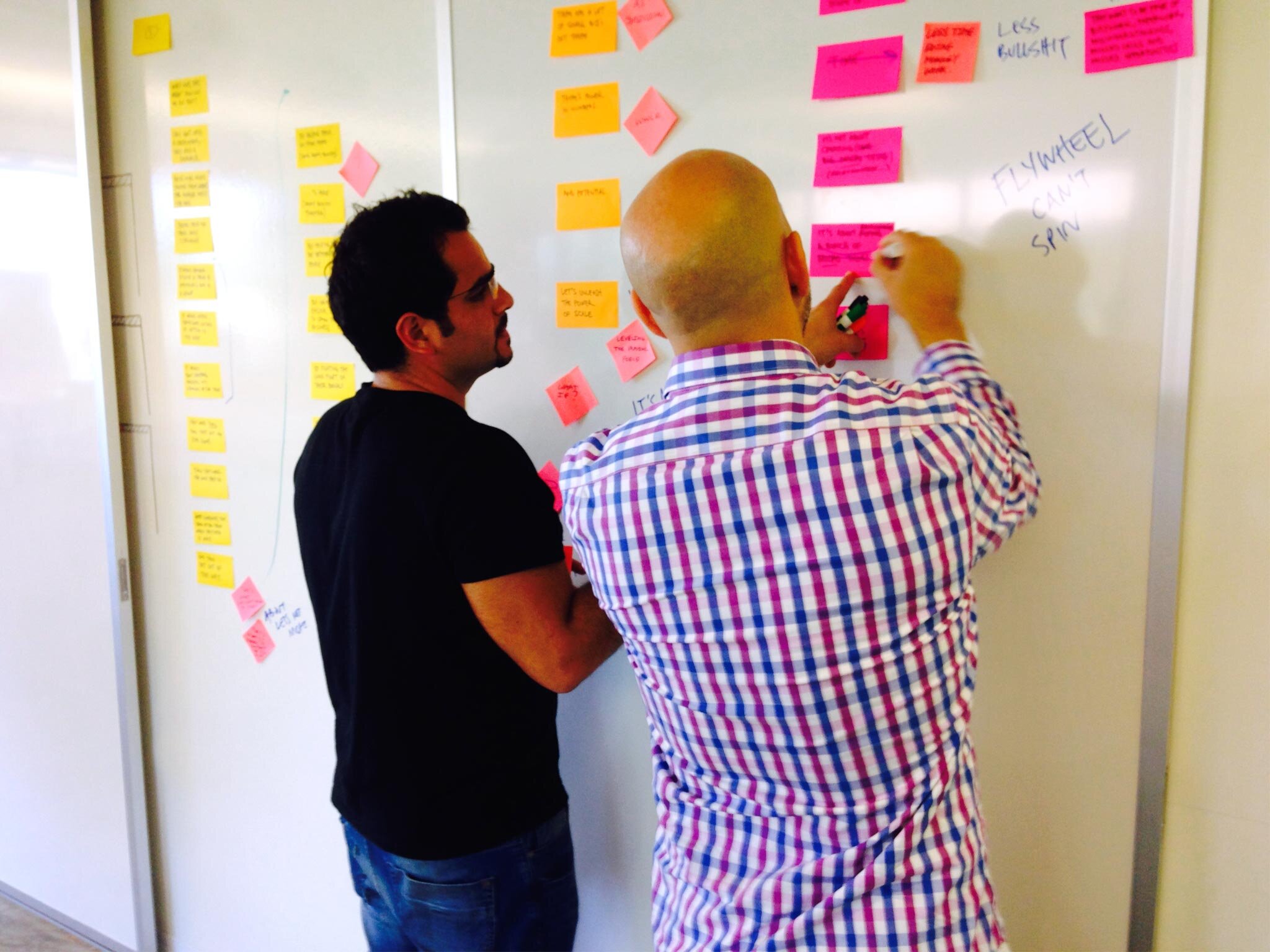
The Problem
—
We say we love small business. But we’re not that great at showing it.
Sure, the blessed and approved corporate values are plastered liberally around Intuit’s campus. But, like a lot of big companies with a lot of complicated, competing initiatives going at all times, it was getting harder and harder for the rank and file to actually make good on them. It was getting harder and harder to know how to show up for small businesses and do them a solid. And even though the place is swarming with A-students doing A-work, the pace of meaningful change at the company had slowed. It’s a big ship that’s slow to turn. Luckily, a small cadre of internal troublemakers led by Lionel Mohri, had had enough. It was time to shake things up.
When Lionel first reached out, the ask was this: We’ve been talking to small business owners across the country, help us make sense of what we’ve got. Help us translate what we heard into a set of inspired, tangible provocations—that we can then take to different divisions and start instigating an inside-out revolution. Subsequently, that gig—codenamed Project Touch—led to five other projects (and counting). Each one was focused on largely the same objective: bring the voice of the customer into the organization and initiate the sort of changes in products and communications that will make a real difference for current and future customers.
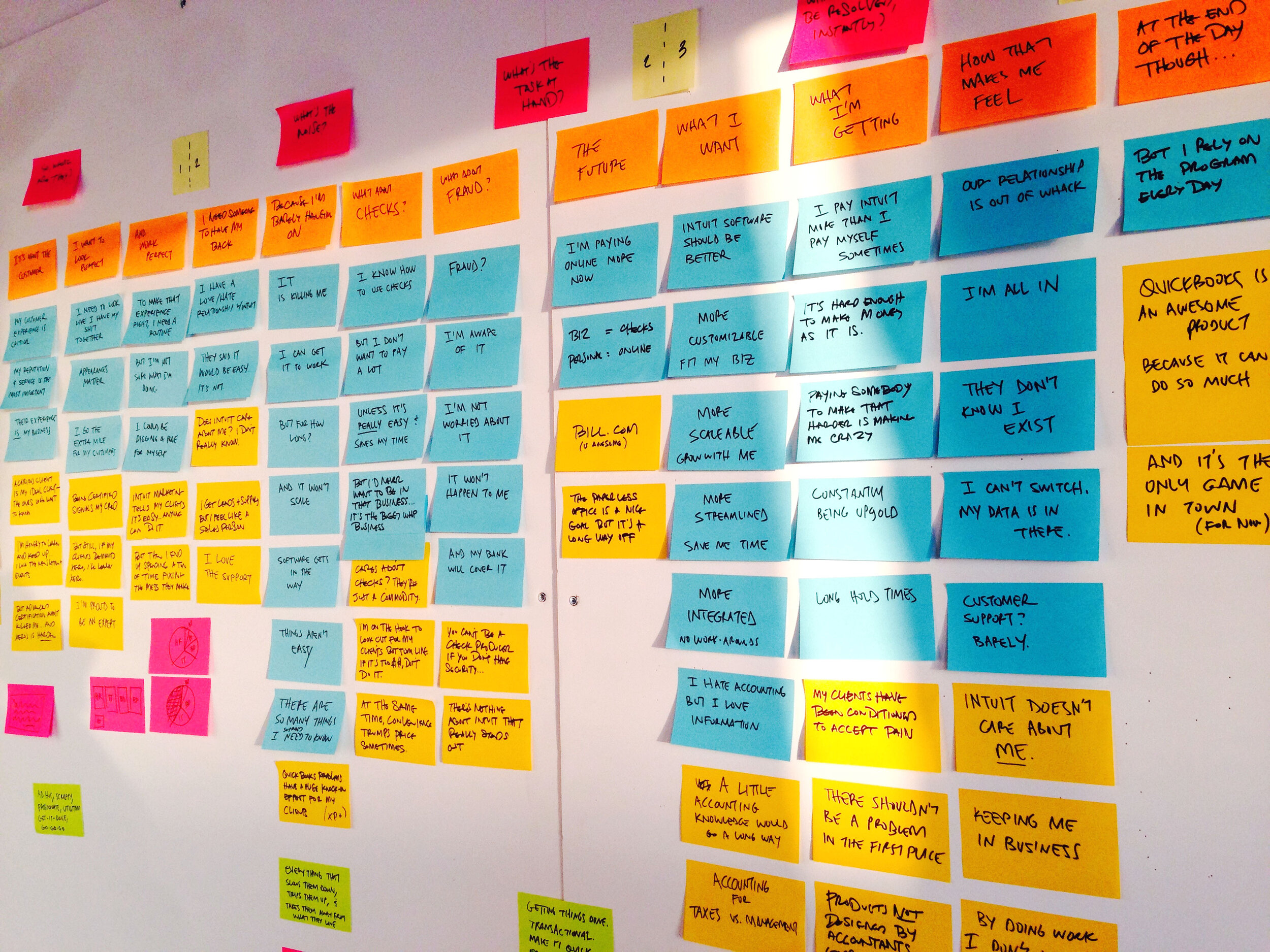
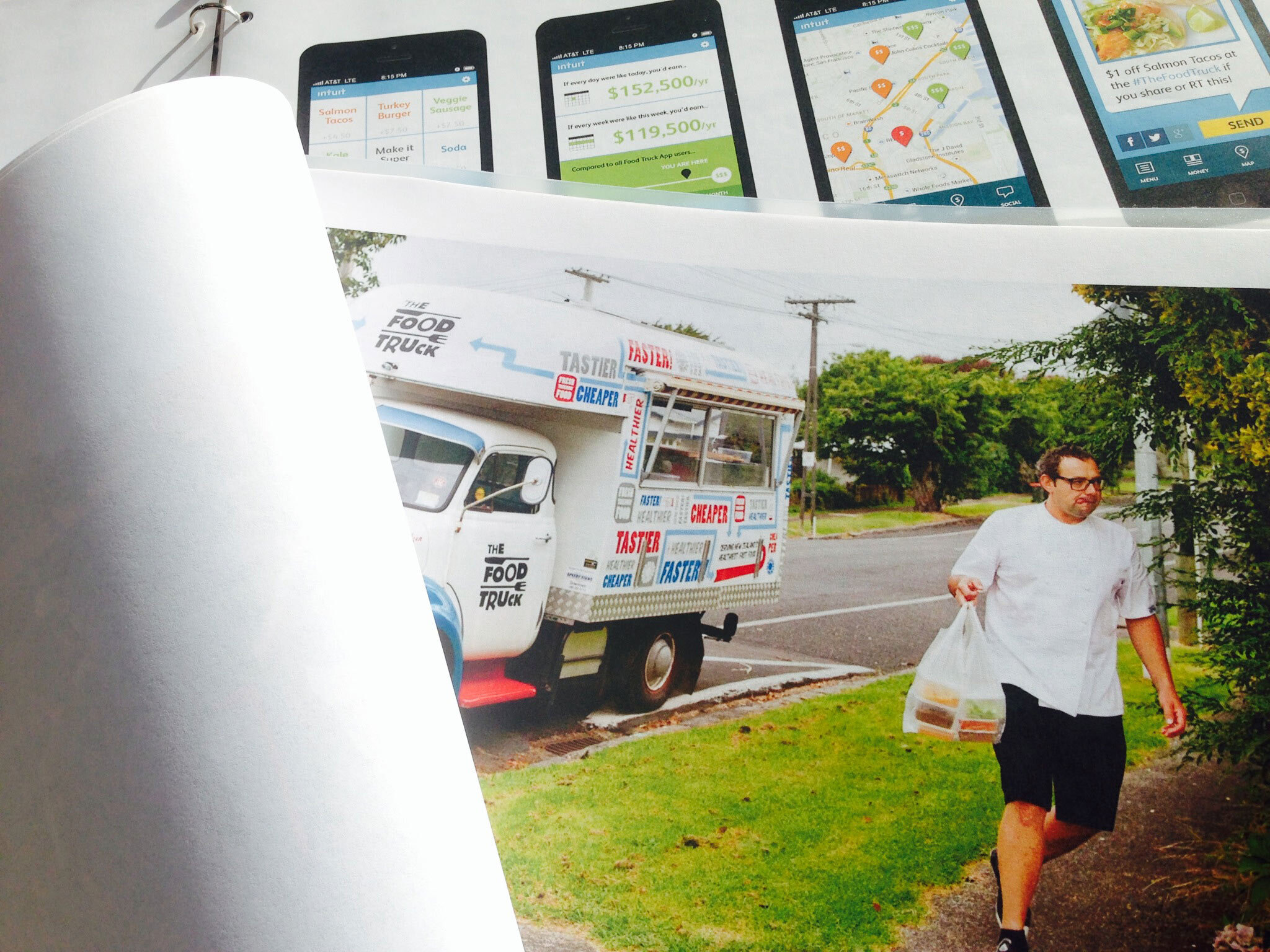
The Research
—
Intuit really does love small business.
It was incredibly eye-opening to spend time with scores of small- and medium-sized businesses during our various discovery phases. So many important details (like people’s feelings) get lost in quantitative surveys and focus groups. But being face-to-face with small business owners—literally the moms and pops of the world—in their cramped offices, paperwork stacked high and the phone ringing incessantly, gave us a visceral sense of their real life challenges and triumphs. The entrepreneurial spirit is alive and well in America and it’s mind blowing how many different ways there are to eke out a competitive niche. All that energy and exuberance was great for Intuit, whose bread and butter is the scrappy DIYer. And yet their future was littered with a million potential landmines.
In almost every interview we heard the same thing—although Intuit claimed to love small businesses, small businesses did not feel loved by Intuit. This is truly an existential problem. How long can a relationship last when you love someone and they don’t love you back? What kind of relationship is that anyway? Not a happy one if you were to judge it by Facebook comments or customer service call ride-alongs. Customers felt stuck. They felt like they weren’t being heard. They felt like a number, not a name. They felt, well, invisible.
Internally, from engineering to customer service, Intuit employees were honestly trying to do right by their customers. But cheery posts by the marketing team on social media were met with immediate derision and a litany of bug fix requests. Clearly there was a disconnect. What was really going on, and how could we help lay the groundwork for more long lasting and mutually loving relationships?

The Insight
—
Stuff needs to just f-ing work.
At its heart, Project Touch was about realizing that ‘small business’ is not an abstract idea. Small business is about people. Real people, who have a lot on their plate and who desperately need more time, more space, more money, more help. It’s not exaggerating to say that many small businesses are in a daily fight for survival. And in that sense, it’s not enough to just emphatically shout “We love you!” Intuit needed to show, tangibly, what that love meant.
We came to realize that the key problem wasn’t that Intuit didn’t care. It wasn’t that the product wasn’t up to snuff (although it did have a few annoying bugs that never seemed to get fixed). It wasn’t that their values were misplaced or that their leadership was weak. The problem was that they had been working in an echo chamber for so long that they had lost the ability to break through their own internal narrative about who their customer was and what they wanted. They had been such a dominant player for so long and owned such a disproportionate amount of the market that they assumed that their product, and their company, were loved. What Intuit needed was a mechanism to be critical of themselves. They needed a way to be self-aware without destroying morale. They needed a way to hold onto their intention, but to be a bit more rigorous about how they delivered.
Each of our projects with Intuit further refined this insight. Guided by our awesome internal collaborators, we were able to iterate on this one big idea and tailor practical solutions for each group we worked for.
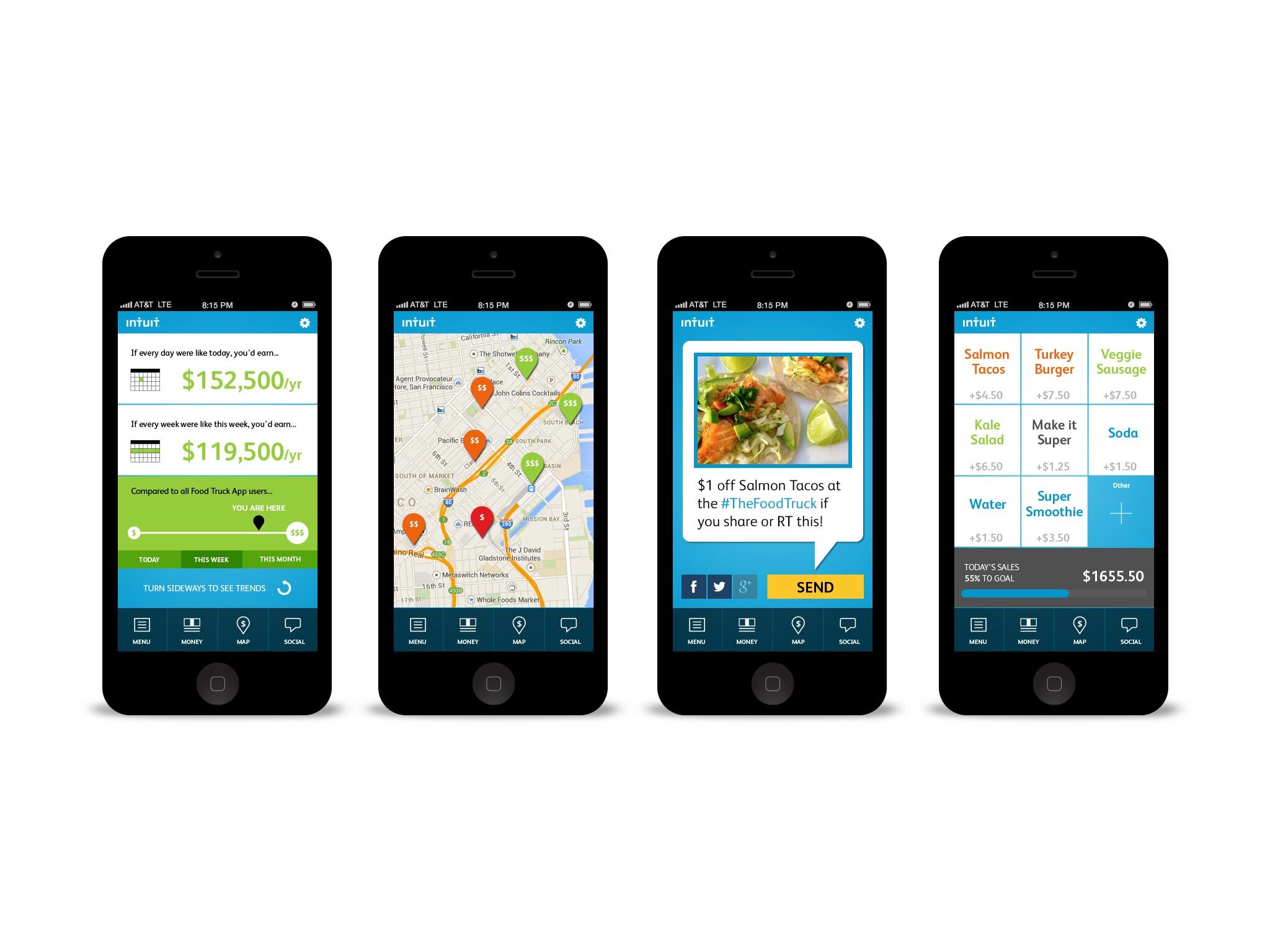


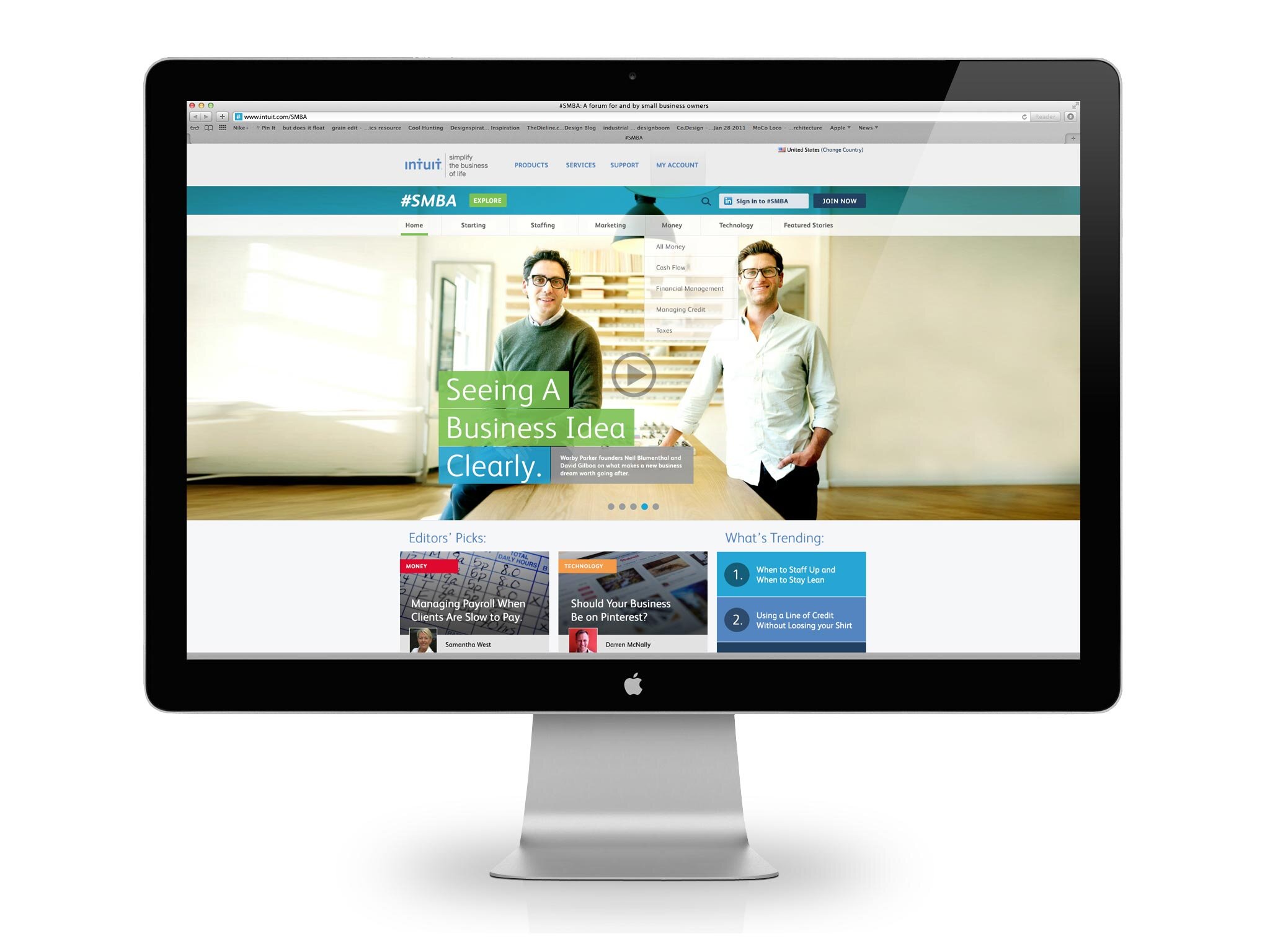

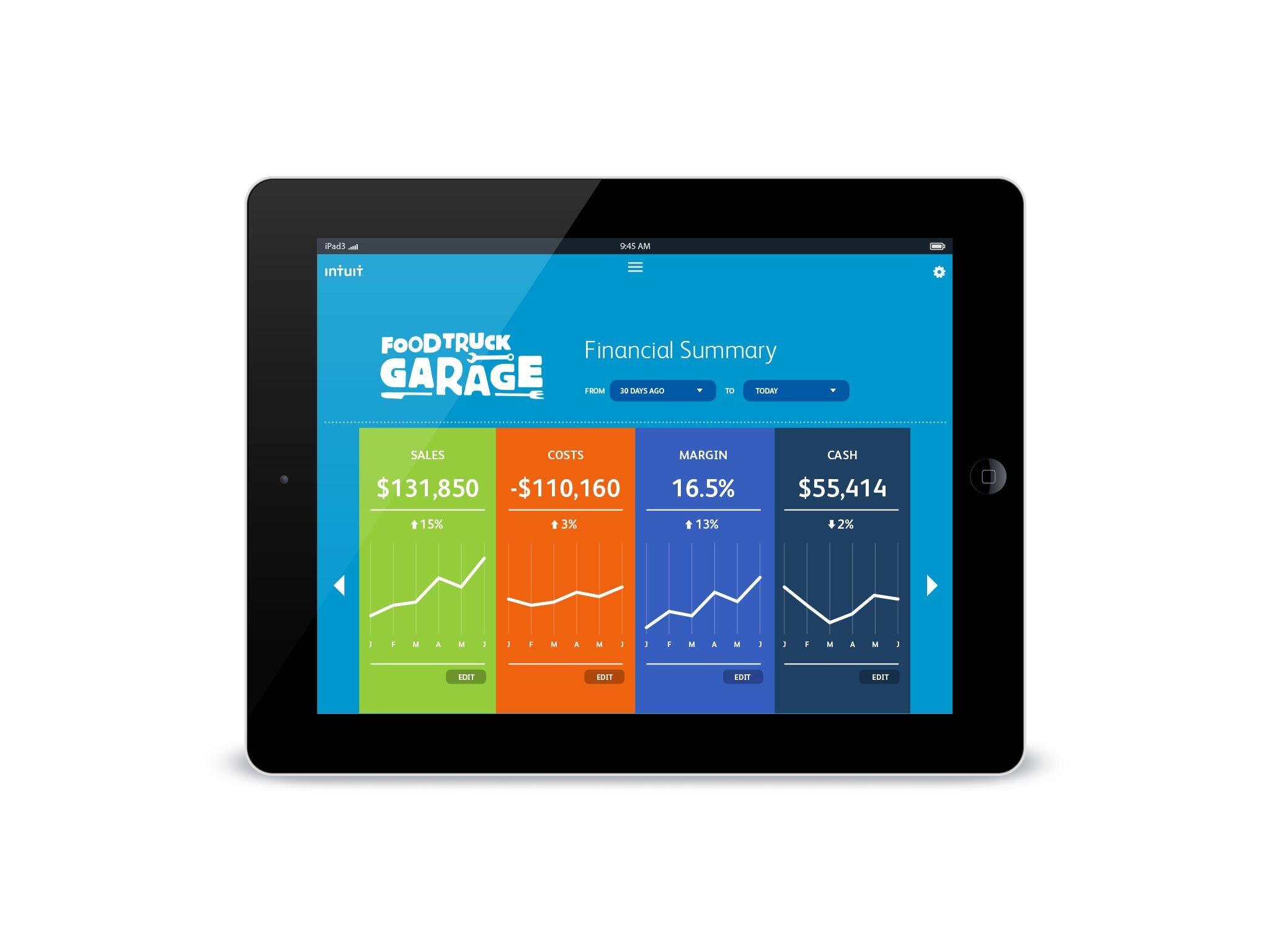
The Answer
—
If it’s broke, fix it. If you can’t fix it, tell the truth. Then fix it.
People can’t get behind something they don’t understand. And when they can’t get behind something, they do nothing. Sure, they still go to a lot of meetings—but they don’t accomplish enough of consequence for customers. So the core of our work was really about storytelling. It was about meeting with customers, translating their worlds into something that Intuit could empathize with, and then aligning the team around solving those problems. And some of those problems were ones that Intuit had created. Coming to terms with that in an honest, humble way, was an important step.
For the Care team, this meant facing the fact that they couldn’t get their satisfaction numbers up if the Product team couldn’t make the product less buggy and the Marketing team didn’t stop over-promising. They wanted to sell an integrated vision of care to the whole company. Our job was to help realize that vision and get Product and Marketing on board. In this case we had three audiences: customers, customer service reps, and the rest of the company at large. We found that customer service reps actually knew customers pretty well (duh!), and that they were already on the same side. In fact, what the company wanted was pretty much what customers wanted too. Success for Intuit hinged on customers being successful using Intuit products. In order to do help customers be more successful using Intuit’s products, Engineering, Marketing, and Support would all need to consider themselves on the hook for care.
For the Essentials team (who are responsible for things like business checks and supplies), our job was to figure out how to better meet customers’ needs today, and tomorrow, at one of Intuit’s most tangible touchpoints. Surprisingly (to us) the Essentials team was the most profitable and, due to its decidedly non-tech nature, the least respected group in the entire company. Flagging paper check usage signaled that its days were numbered, but it was still a robust source of revenue. In fact—shocker—small businesses actually love paper checks Why? Because a well-worn workflow had grown up around paper checks. They felt comfortable, solid, and largely immune from susceptibility to the near daily hacks that were all over the news of late. Intuit had the best product on the market. But they weren’t leaning into that perception—and delivering equal utility and security in other areas.
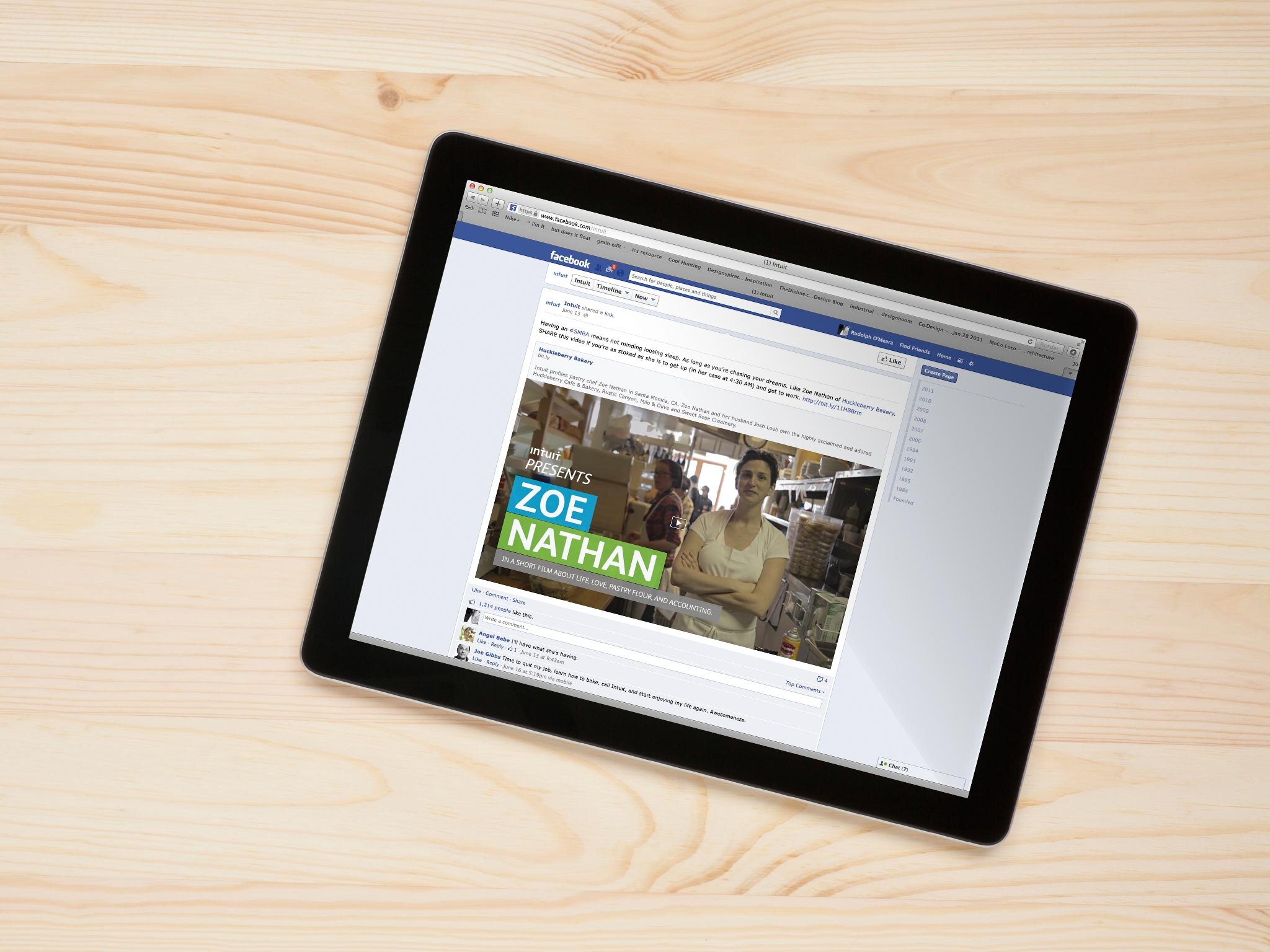

For the Enterprise team (who were about to move to a subscription model and introduce a significant price hike) Our job was to figure out a way to break the news gently and quell a mass exodus from existing users. Our interviews with tons of enterprise customers told us that they weren’t as sensitive to price as Intuit feared. They were in business too, and they realized that Intuit needed to make a buck, just like they did. What they didn’t like was that they felt like hostages. Intuit had essentially cornered the market on small enterprises and these customers knew it. After climbing the product ladder from Quicken to QuickBooks to Enterprise, they felt taken for granted. And it was true.
“The Sequitur team is great. Work with them if you get the chance. They’ll help you develop deep, meaningful customer insights, make difficult business decisions, and communicate in a very real, honest way. They are very good at what they do and are a lot of fun to work with.”
Clare Patel, Director of Enterprise Marketing

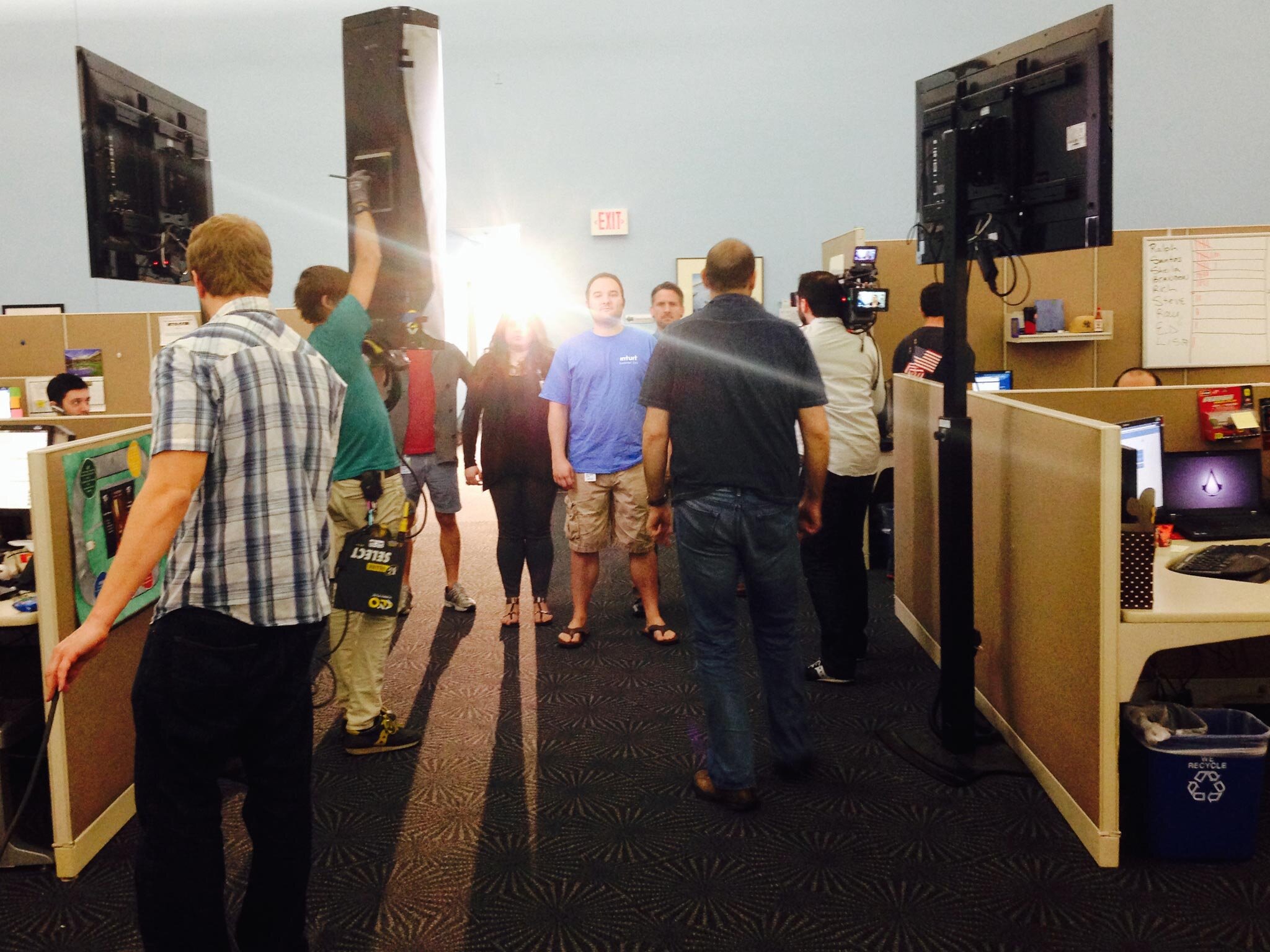
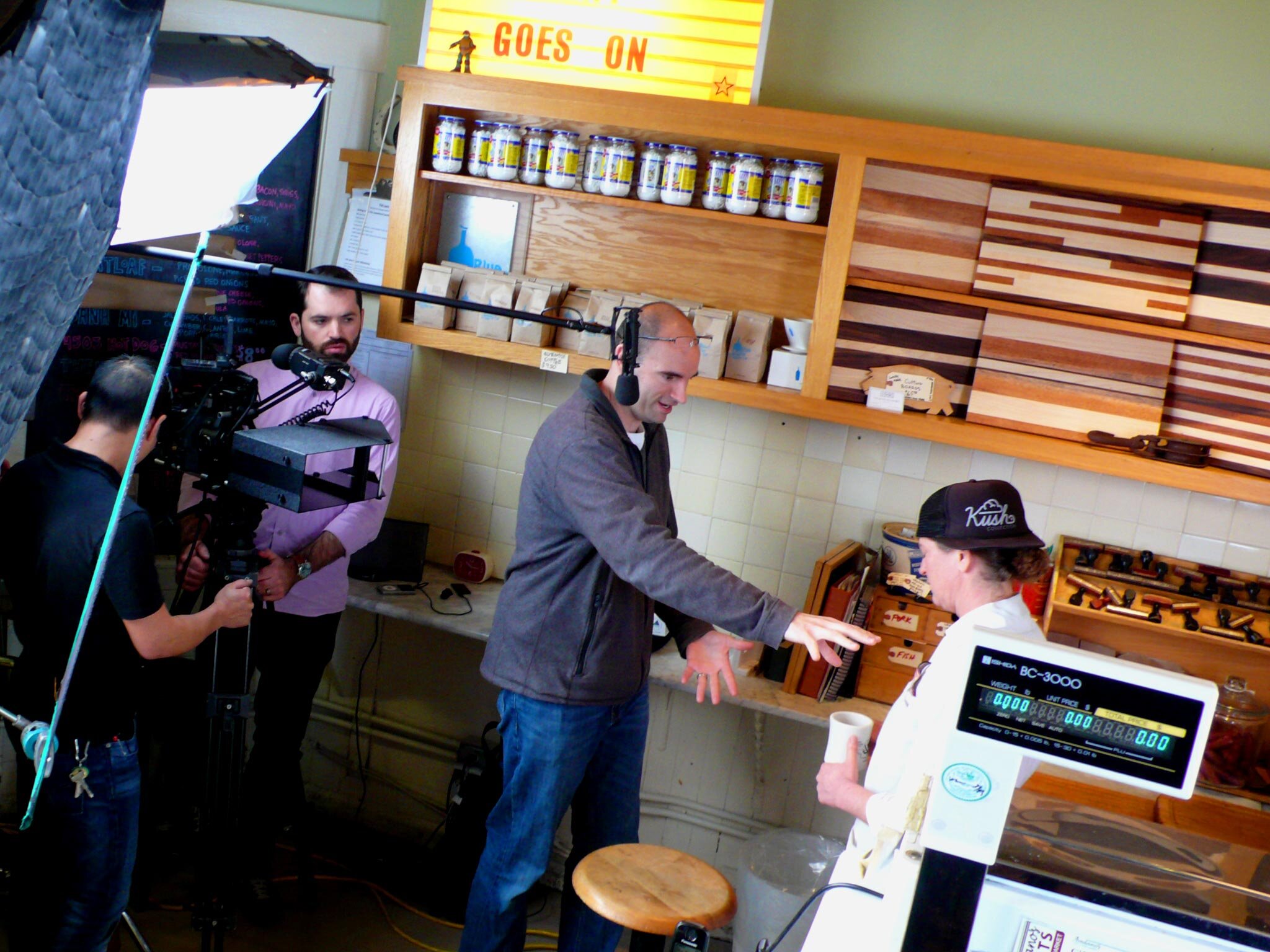
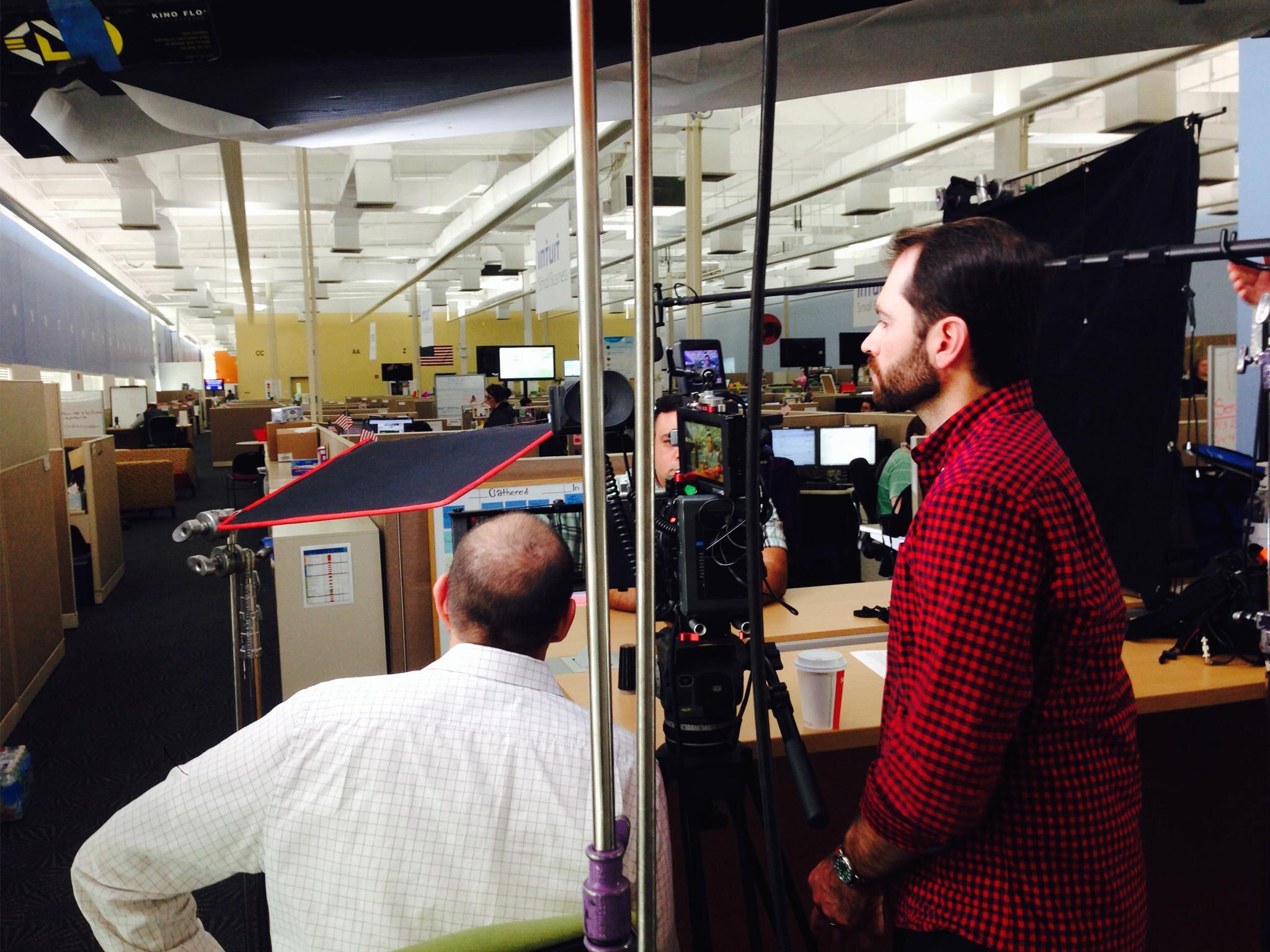
The Work
—
We moved from division to division, building a narrative for change (and the tools to get it done).
Some of this we can talk about freely. Some of it is still underway. So we’ll have to be a bit fuzzy about the details. But basically, in each of our projects, we helped teams grokk the problem, glimpse a set of (possible) solutions, and lay the groundwork for getting shit done. This meant busting down the echo chamber. It meant bringing the voice of the customer into the organization. It meant changing the conversation internally—and creating a new, truer narrative about who the customer actually is—and how to deliver what they actually want. All with the larger purpose of helping folks on the inside do a better job of showing up for customers.
For the Care team, we made a case for everyone owning a piece of care. To get the story out, and make it resonate emotionally, we brought in Danny Nieder and Jesse Dana and crew to help us make a series of short films. They worked an easy-to-digest explanation of the strategy that was both rationally and emotionally compelling. They told stories that everyone could understand, and they started to change how people on the inside saw their responsibilities. Now, engineers could understand that calls coming in about software bugs were not just Customer Service’s problem, they were everyone’s problem.
Don’t just say that you care.
Show that you care—by acting like you care. And by being honest about your shortcomings (and what you’re doing to fix them).
For the Essentials team, we suggested that they lean into the trust they had garnered to help small businesses solve other problems they were encountering. Accounting problems. Security problems. HR problems. We designed an onboarding experience that was more in line with the premium cost of the product. And we created new voice guidelines that were more personal, less transactional, more practical and above all, more to the point.
For the Enterprise team, we helped craft a more personalized, more connected communications cycle that made enterprise customers feel like the VIPs they actually are. We generated a slew of ideas around how to engage customers around topics they cared about and in ways that meshed with their busy schedules. Finally, we gave them a new voice—one that treated customers as peers and as people, not just as numbers.
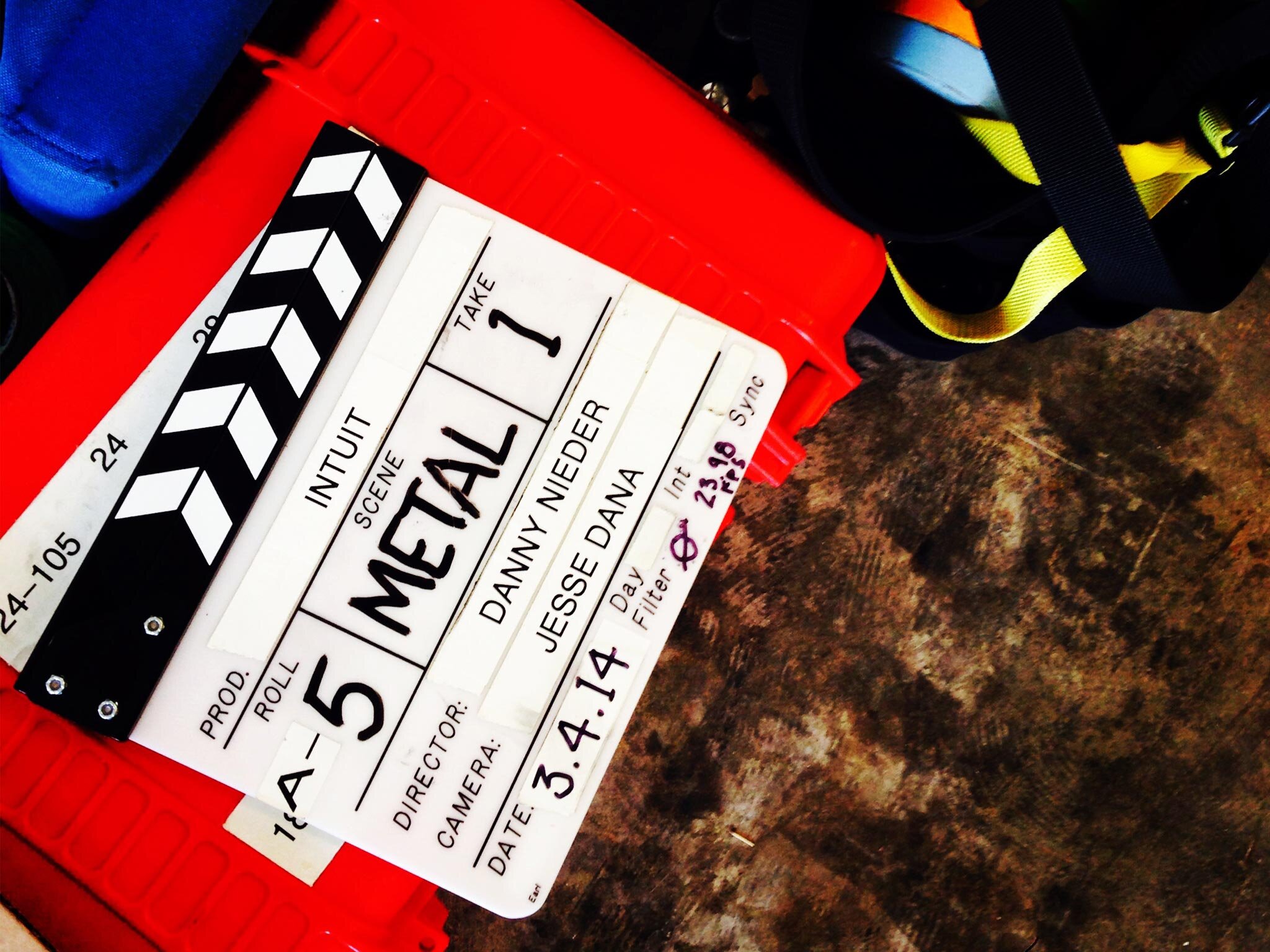

The Ending
—
(Not so) hard to starboard.
Remember that whole big ship thing we mentioned earlier? We’re pretty sure we moved the rudder. Project Touch had a viral reach inside the company that often preceded us as we were introduced to different divisions. We’re proud to say that our work had an impact not because it was shoved down people’s throats (ever been a victim of a traditional rebrand?) but because it contained a sort of resonant, undeniable truth. As much as we hate to admit it, we’re not geniuses. We didn’t invent anything new, or show anything that everyone didn’t already know. But we did help separate what matters from what didn’t. We did help align a lot of people around a common sense of purpose. And we did practice what we preached, by creating a handful of executions that set a benchmark for the future.
And the moral of the story is: Show that you care by acting like you care. It’s that simple.
What We Did
